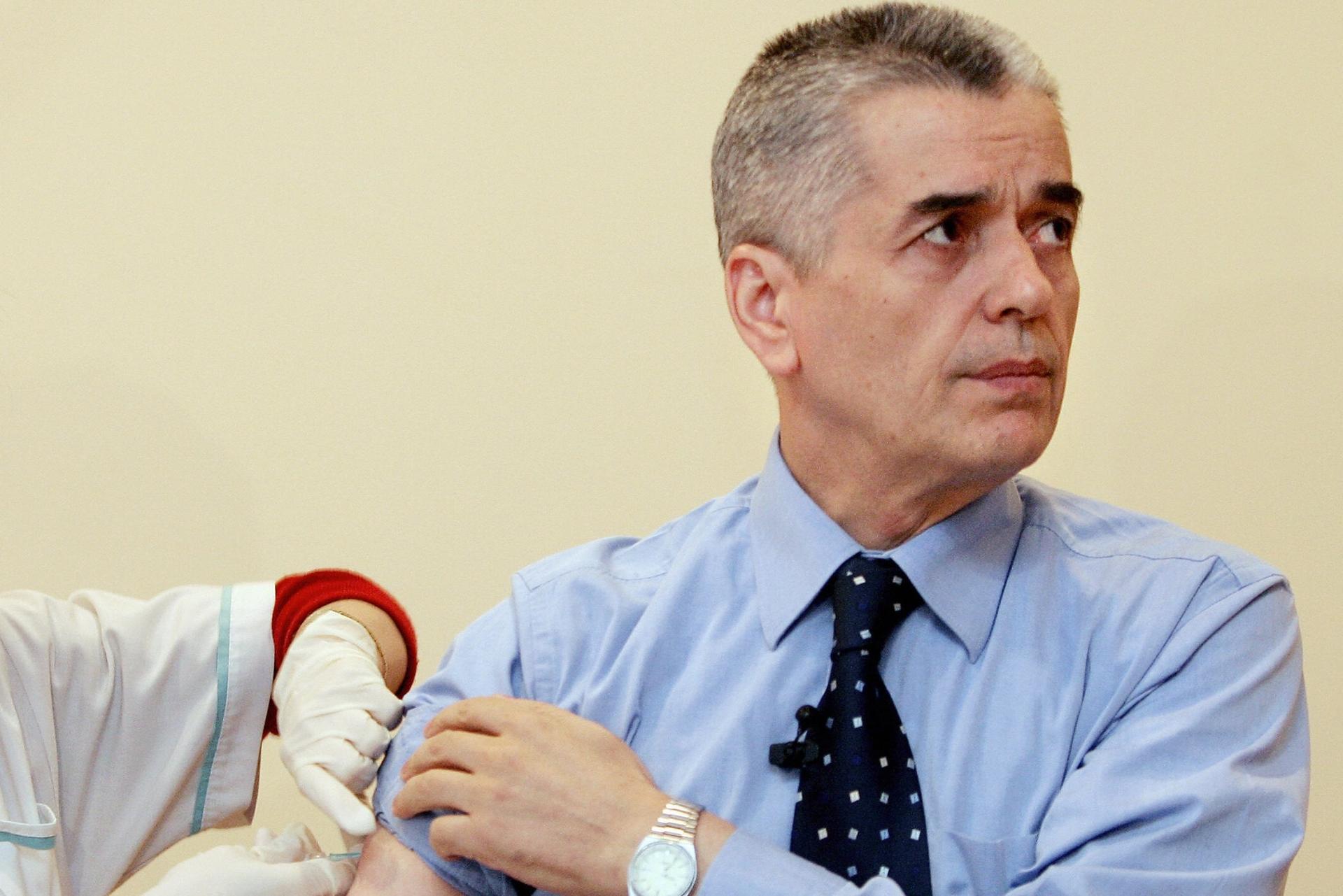The joke’s over for Russia’s top doctor
Gennady Onishchenko gets a flu shot.
You may not realize it, but Georgian wine, Ukrainian chocolates and Lithuanian milk are all hazardous for your health.
So is air conditioning, attending protests and kissing.
At least that’s what Gennady Onishchenko, Russia’s chief sanitary doctor, says. For years, he has offered curious and downright bizarre bits of advice for his countrymen — all, ostensibly, in the name of raising a healthy Russia.
That may come to an end, however, after he was shuffled out of his position yesterday as head of the Federal Consumer Protection Service, an official watchdog that monitors food safety and public health.
For Russia watchers, journalists and the ordinary Russian, Onishchenko represented a rare dose of humor — intentional or not — from an otherwise decidedly unfunny Kremlin.
“Crows are feathered wolves, and they must be mercilessly destroyed,” he said in 2006, commenting on the potential spread of the avian flu.
He also never shied from boasting of his tireless commitment to his work.
“I have never spoken the word ‘siesta,’” he said in July 2010, apparently suggesting he was unfazed by the searing Moscow heat. “For me, it is a curse word.”
But it wasn’t all funny.
Many of his warnings against foreign products coincided with import bans critics say were aimed at countries that ran afoul of Moscow’s foreign policy and its grand plans for reestablishing influence over former Soviet republics.
Such was the case in recent months, when his agency banned Ukrainian chocolates, Moldovan wine and Lithuanian dairy products.
The excuse? Substandard quality — even though Moldovan wine has long been celebrated throughout the former Soviet Union, and Roshen, the Ukrainian confectioner, is one of Ukraine’s largest and most popular.
Those decisions happened to take place just as Ukraine and Moldova reaffirmed their commitment to concluding landmark agreements with the European Union that would pull them further into Brussels’ orbit and out of Russia’s.
Lithuania, meanwhile, has been a staunch supporter of those two post-Soviet states’ European integration. It currently holds the presidency of the Council of Europe, and will host a summit in late November, when Kyiv and Chisinau are expected to sign the agreements.
A ban on Georgian wine, enforced two years before Russia fought a brief war with Georgia, was lifted only earlier this year.
More from GlobalPost: Will Khodorkovsky go free?
Despite the fact that his bans conveniently coincided with some of Russia’s most heated geopolitical tussles, there are signs that Onishchenko is simply a dedicated Russian.
He urged his fellow Russians several times to be more “patriotic” with their eating habits, avoiding such un-Russian foods as McDonald’s and sushi.
“This is not our food,” the Washington Post reported him as saying in 2012.
But while the 63-year-old’s colorful health-related escapades may be over, he’s not quite ready to retire. A spokeswoman for Prime Minister Dmitri Medvedev confirmed yesterday that Onishchenko would serve as an advisor to the prime minister.
Every day, reporters and producers at The World are hard at work bringing you human-centered news from across the globe. But we can’t do it without you. We need your support to ensure we can continue this work for another year.
Make a gift today, and you’ll help us unlock a matching gift of $67,000!
